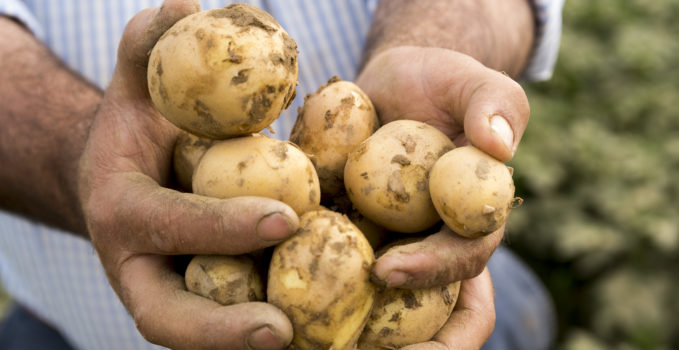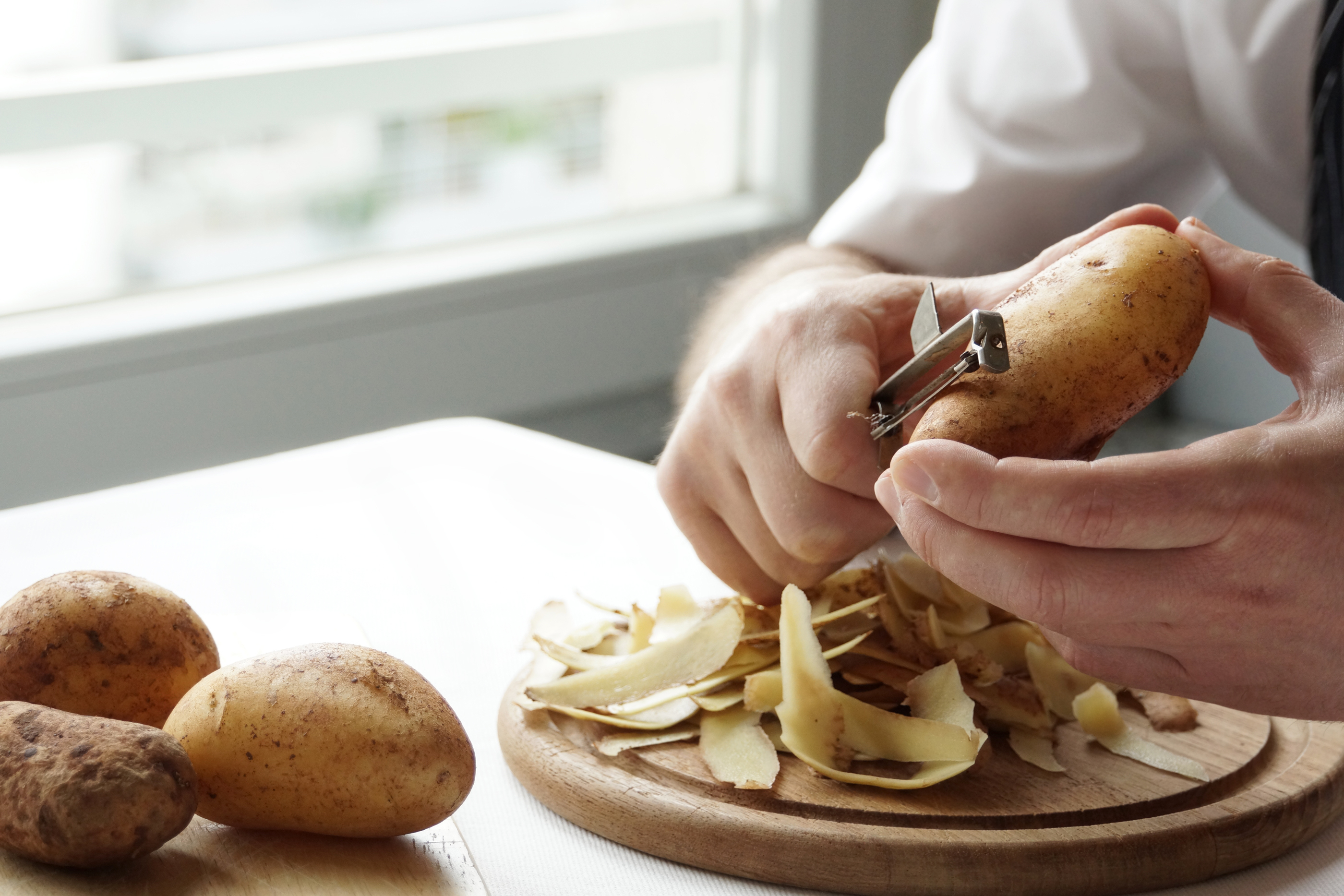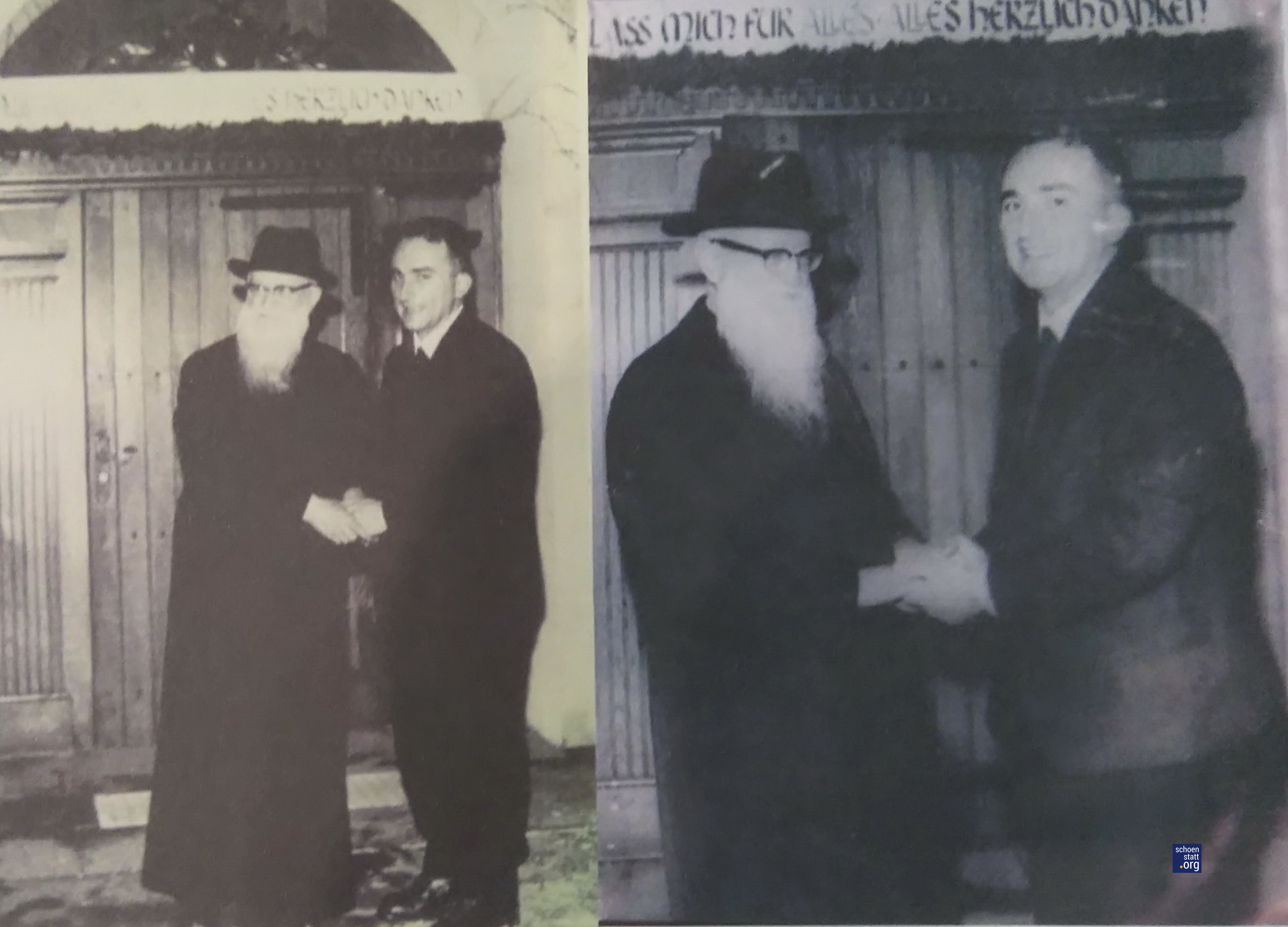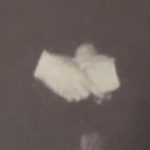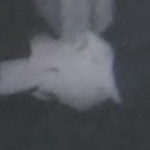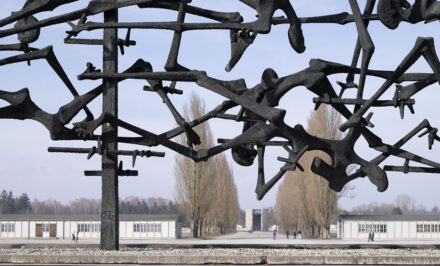ENCOUNTER WITH FR KENTENICH, Fr José María García Sepúlveda •
“Where is my potato?” A somewhat surprising question put by Fr Joseph Kentenich, Schoenstatt’s founder, when he looked at a photo of seminary students of the Schoenstatt Fathers. “My potato” was Fr Kentenich’s nickname for one of them. I was told this story recently by Juan Fernandez, who is a sculptor today, and whom Fr Kentenich called “his potato”.
A nickname or a symbol, which he passed on with great joy as we prepare for the fiftieth anniversary of Fr Kentenich’s death. The reason for this joy is the explanation about the meaning of the name, which Fr Kentenich personally gave to Juan: the skin of a potato cannot be removed without taking some of the contents with it. That is how closely Fr Kentenich was and is united with his spiritual sons and daughters, and which he had personalised in relation to our sculptor. It is a relationship that is always personal, hence the name “my potato”.
It is a personal attachment
How does it start, what creates such a deep and personal bond? It happens when someone experiences that the vital power of the Father is “selfless service to one’s own life and mission in life”. You don’t feel used and bowed down, but your own life is “served”. Then you begin to feel like a “child”, like the son or daughter of the Father. The Father always places the son or daughter in the foreground. It is a sign of his own inner freedom and maturity through which he can become fruitful as father and educator. Fr Kentenich personally testified that his fatherhood was the fruit of his relationship with those whom he was able to serve.
In particular with men, bonding with Fr Kentenich is connected with solidarity in carrying out a task or mission; in practical terms it involves the personal ideal of both. I am responsible for his being and mission, and the Father is responsible for my being and mission. I am sure that at least half of the women will now say: that also applies to my bonding with Fr Kentenich. Bonding with Father, attachment to him, is not just a help, although it naturally is that, but also an affirmation of the reality and originality of the other in solidarity with him or her. I am enriched by it. This is not some general sort of enrichment, but a very personal one. It is not just something outward.
Within this relationship, if I talk about “practical faith in Divine Providence”, it is not a “method” of discernment, but practical faith in Divine Providence out of Fr Kentenich’s charism. And the attitude I have as a result of this bond with Fr Kentenich is not simply any sort of contribution, but MY ORIGINAL AND UNIQUE CONTRIBUTION. In this way Fr Kentenich’s charism is enriched, it becomes a concrete reality here and now through my charism.
It is a reciprocal covenant
It is exactly the same with the Blessed Mother, the MTA. She acts and enriches her task with the talent or charism God has given me, and which I place at her disposal. Like St Paul I can say that my “talents and my suffering” make up for what is lacking to the cross of our Lord.
This way and this experience through human bonding means that our bonding with God does not remain only an idea, but becomes real and authentic. This brings us to the core of organic thinking, loving and living, a somewhat abstract albeit central concept for what Fr Kentenich personally described as Schoenstatt’s task and mission for the Church. Living in Father makes us children and makes us brothers and sisters.
Our Father’s vital fullness and maturity gave rise to his selflessness and personal self-surrender, as well as his fruitfulness. The simple, and in the truest sense of the word, “earthy” image of the potato, brings us to the most human and most divine aspects of our covenant with the Triune God. Jesus came to give us this way of living “in the Father”, in his merciful love, and it is what HE himself lived.
It is education in freedom
In order to educate, you have to create sound bonds. On the part of the educator these must at the same time be mature bonds, that is, bonds arising from selfless service to the person who has entrusted him or herself to you. Fr Kentenich possessed this mature and courageous freedom, and in it he grew with the trust he evoked. This is how he was and still is with each of his “potatoes”, from his first “my dear young friend”, as he wrote more than a hundred years ago, until today when someone freely responds to this strange image that reveals so much about this deep and personal, as well as educational bonding.
“Where is my potato?” As in God, everything comes from the Father and returns to the Father with the life he has given his children. Our road leads homewards to the Father.
An incident related to me during an informal conversation shows us the depth and the courage with which Fr Kentenich lived his mission as father and educator of his family in a practical and direct way. This family has been called not only to form apostles, but also to educate them. Mary’s mission in the Church.
Original: Spanish. Translation: Mary Cole, Manchester UK


